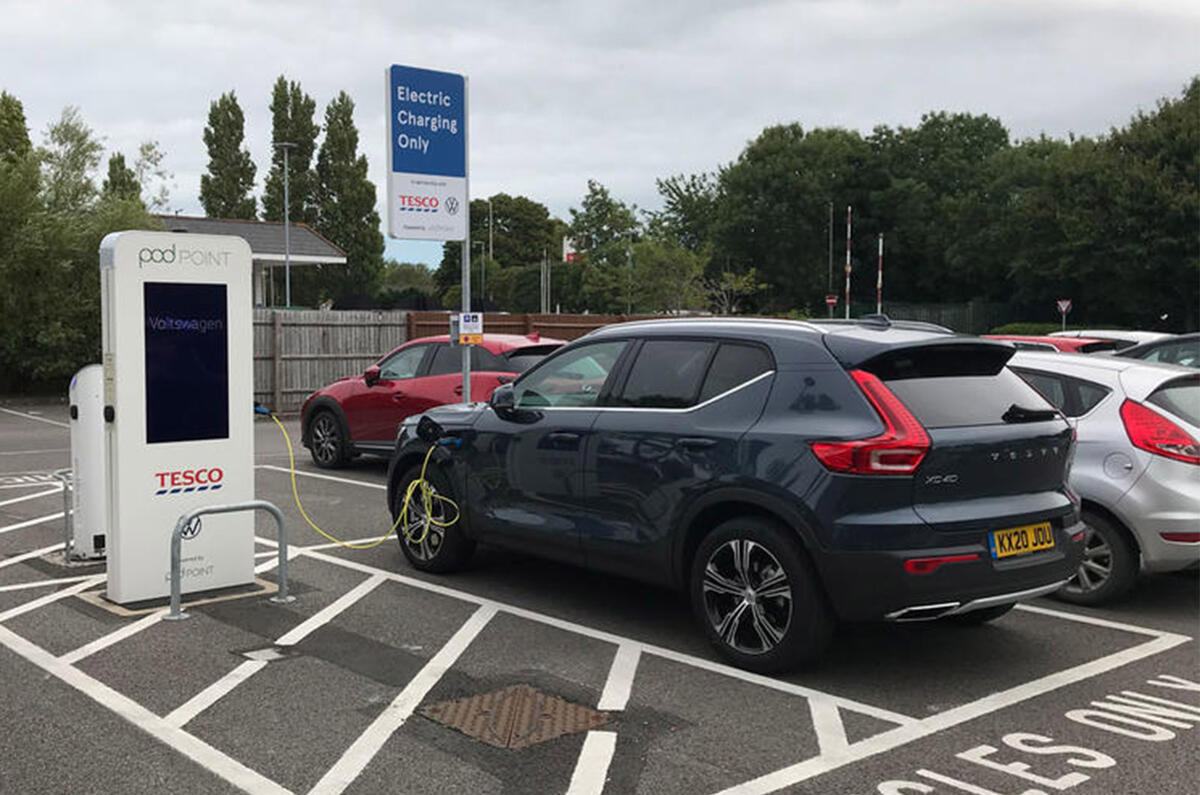Volvo boss Håkan Samuelsson says his company will be able to meet its target to have half of its sales from full-electric cars by 2025 - but achieving the goal will depend on governments investing in charging infrastructure to help boost customer demand.
The Swedish firm has set a goal of selling only plug-in hybrid or electric cars by 2025, with sales split equally between the two across Volvo and sibling brand Polestar, as part of a plan to become carbon neutral in its operation by 2040.
Volvo sold 115,436 Recharge-branded plug-in hybrid and full-electric cars last year, up from 45,933 in 2019 and representing 19.8% of its total sales. Around a third of all Volvos sold in Europe were plug-in hybrids.
Volvo’s first full-electric car, the XC40 Recharge P8, went on sale last year alongside the Polestar 2. Volvo will unveil its second EV, based on the same CMA platform, in March.
Asked by Autocar whether Volvo was on course to meet its ambitious EV target despite having only one such car on sale, Samuelsson said: “We have in our product cycle plan cars that will be ready to have half of our sales electric. That’s ongoing.” Samuelsson added that the challenge is estimating how fast customer demand for EVs will grow.
"What’s more difficult to predict is whether customers will choose those cars, or stay with plug-in hybrids or conventional cars,” he said. “We’re encouraged by the results that [the shift to EVs] goes fast and is getting faster.
“But one thing outside of our control that needs to be better to drive EV take-up is charging infrastructure, which governments need to invest in. Electric cars need high-power chargers along major road networks. That is something that needs to happen fast for 50% of our cars to be electric [by 2025].”
Samuelsson said the growth in demand for an increased number of more powerful EV chargers offers “an interesting new business”. He added: “The big petrol companies should be interested in becoming the number one in charging because that’s the new way of fuelling in the future.”
Samuelsson also urged governments to resist increasing taxes on electricity in order to replace a likely drop in income from fuel duty. “Electricity cost is really important to drive electrification of cars,” he said. “Even with high tax levels today, there’s less tax on electricity than fuel [in most countries], and [the lower cost of electricity] is probably the best driver for electrification.
“If governments really want to promote electrification, I would urge them they should resist the temptation to tax electricity more than today.”
READ MORE
Car industry must commit fully to electric vehicles, says Volvo boss
Volvo boss Håkan Samuelsson awarded top honour at 2020 Autocar Awards








Join the debate
Add your comment
Battery tech is the key, longer range, quicker charging times, otherwise it's a none starter.
And once again Tesla is leading the way in this regard as well. Superchargers wherever most drivers will need them when they want to travel longer distances reliably.
The only car company that has thought it through properly.
So obvious.
You make it sound like Tesla has all the answers, why not this?, share, share the infrastructure tech, so all makers can do the same as Tesla, what's wrong with that?, is it about profits?, surely they put money before a better infrastructure which in turn would encourage more of us to buy an EV car, better for Country, World, just because a Tesla drive can be smug about how short his charge time is, isn't the point.
The latest 'Harry's Garage' video on charging an iPace is a valuable 10mins lesson in how EV charging, even now, is a a challenge.
You wanna see his response to charging the model 3 Harry had on trial
Chalk and cheese was his response.
The charger he had to charge the Taycan seemed to be the business, watch his video on that amazing car
Just watched the Harry’s garage video on the i-Pace. What a great review, will certainly be looking out for more of his video’s. As a driver of an I-pace I agree with his observations regarding the range on motorways, but assume this applies to all EV’s. I successfully managed 700 miles in a week taking the car on holiday last year, but it did take time planning on Zap Map as to which charge points to use and which to avoid. It would be great if all providers operated like Instavolt with their simple contactless payment facility.